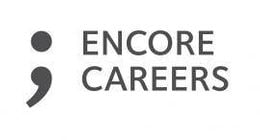Find New Work After Years on the Job
There is value in seasoned workers
"I was fully qualified and it makes no sense” is the most common complaint. “They simply don’t know how to hire” is another one. Or, “They told me that I was overqualified.”
Randy Block, a seasoned career transition coach and consultant in the San Francisco Bay Area, often hears comments like these.
He knows that the ultra-competitive job search process in today's economy is especially hard for experienced individuals seeking encore careers. He advises them to think and act differently during interviews in order to succeed.
Block says that one challenge boomers face is the gap between their generation and the Gen-X hiring managers of today. He notes, "Thirty-somethings don’t want to hire their parents." Unfortunately, that's how boomers often come across — as their parents.
Here are four tips he offers boomers during job interviews:
- Show passion for your work If you're mission-driven at this stage of your career, it should be easy to demonstrate your interest. As Block notes, relationships are based on shared values. He believes that shared values make up most of what we call chemistry. Chemistry is enhanced when we meet others who have a shared or common interest. If you consider yourself committed to what you do for a living, you'll most likely cross paths with a hiring manager who has a shared interest in the same area. It may be a new area for you as you undergo a possible career change. You may have the opportunity to take your transferable skills and put them to use in some new ways. If you're genuinely excited about your possibilities, your excitement can be contagious, especially during your interview.
- Sell your brand The best way to prepare for an interview is to start with a focus — a personal “brand” — that sells you. Practice describing yourself with a simple sentence that offers three very important selling points about yourself. First, it should say who you are; second, it should offer your biggest strength(s); and third, it should offer the biggest benefit that you bring to your next employer and how you can help the organization succeed. The purpose of your brand is to go beyond mere duties and job descriptions and get to the "what's in it for them" benefit that will make the employer sit up and take notice.
- Sell yourself as a coach or mentor Another disparity that needs to be addressed, according to Block, is the fact that boomers want to be “led” rather than managed. In his coaching practice, he has found that most 30-something managers look for someone they can “manage.” In coaching sessions with young managers, he has observed that their leadership skills typically lag behind their management skills. If you're a boomer, take note and realize that you might not get the visionary leader you hoped for in your next hiring manager. Block has discovered that most young managers need help and guidance. They actually appreciate being mentored, coached or advised. They recognize the need, but look at it as a temporary or project-based opportunity. The hiring interview is an opportunity to sell yourself as a consultant whose many years of expertise can be useful in the role of a temporary coach or mentor. Doing so increases your opportunities since nonprofits are hiring more consultants in this economic downturn. As the economy improves, that temporary contract could well turn into a salaried position.
- Think 'Tactical' vs. 'Strategic' According to Block and other employment analysts, many nonprofits today view their short-term needs as having paramount importance. They're looking for players who can hit the ground now and help them survive through the next six to nine months. Using phrases like "long-term" and "strategic" to market yourself won't have the impact of even a year ago. Rather than emphasize the long haul in your resume and during interviews, look instead at selling yourself as an expert who can get in and fix the problems of today quickly and efficiently. Focus on clear, results-oriented achievements for short-range problems. Gen Xers need your help. Your working relationship will likely begin as either a part time job or a short-term contract but can extend into a full time position once you've proven yourself. Focus on ways you can help a nonprofit survive through this recession and demonstrate how you can help produce immediate results. A younger manager would have to be very shortsighted not to explore a working relationship with someone more experienced. Capitalize on your wealth of experience to make a positive difference in the lives and careers of the Gen Xers.
A former recruiter, Joe Turner is author of Job Search Secrets Unlockedand Paycheck 911. He also hosts the weekly Job Search Guy Radio Show.
This article was originally published by Encore.org on Sept 11, 2009.


